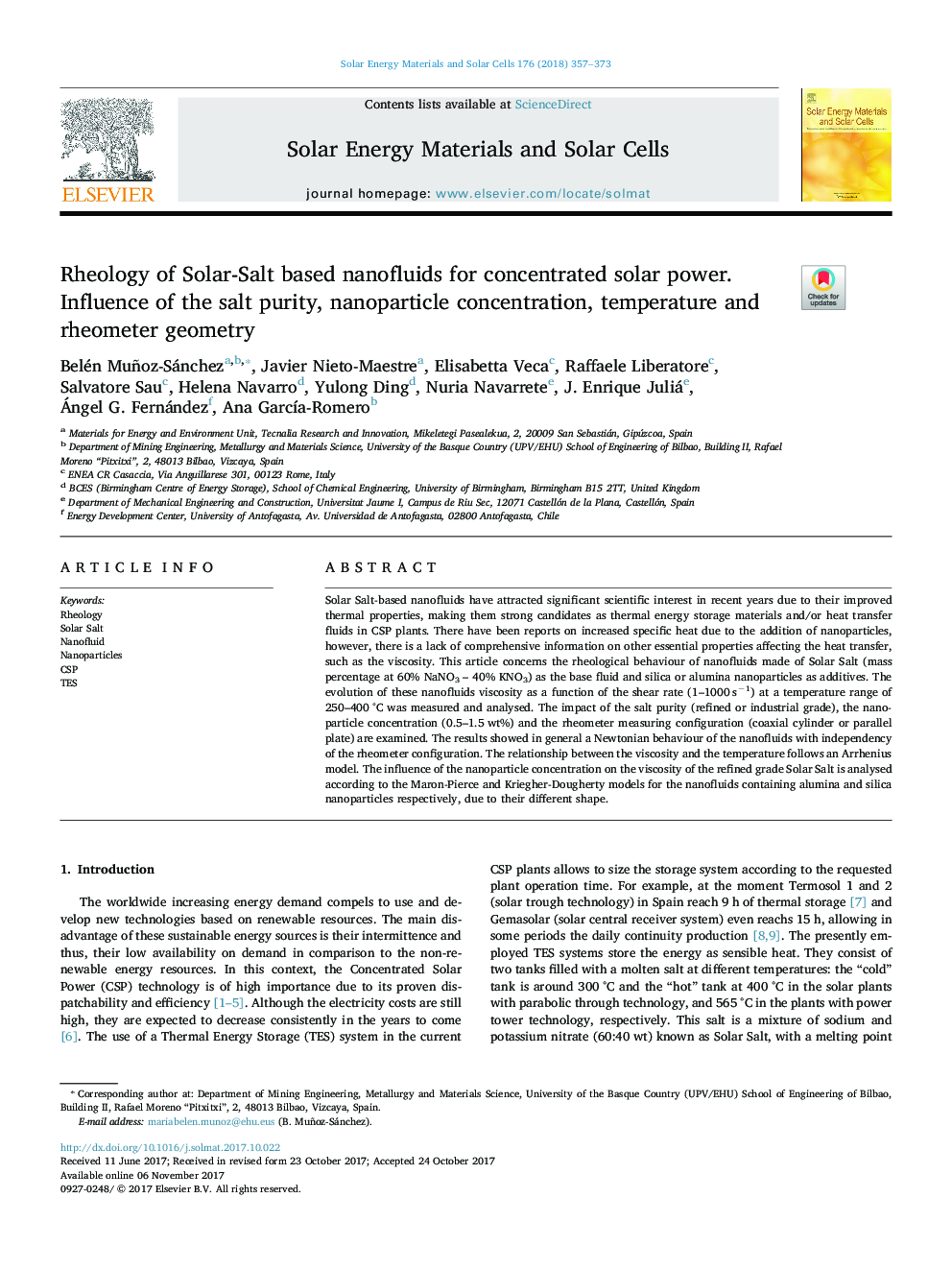| Article ID | Journal | Published Year | Pages | File Type |
|---|---|---|---|---|
| 6534476 | Solar Energy Materials and Solar Cells | 2018 | 17 Pages |
Abstract
Solar Salt-based nanofluids have attracted significant scientific interest in recent years due to their improved thermal properties, making them strong candidates as thermal energy storage materials and/or heat transfer fluids in CSP plants. There have been reports on increased specific heat due to the addition of nanoparticles, however, there is a lack of comprehensive information on other essential properties affecting the heat transfer, such as the viscosity. This article concerns the rheological behaviour of nanofluids made of Solar Salt (mass percentage at 60% NaNO3 - 40% KNO3) as the base fluid and silica or alumina nanoparticles as additives. The evolution of these nanofluids viscosity as a function of the shear rate (1-1000 sâ1) at a temperature range of 250-400 °C was measured and analysed. The impact of the salt purity (refined or industrial grade), the nanoparticle concentration (0.5-1.5 wt%) and the rheometer measuring configuration (coaxial cylinder or parallel plate) are examined. The results showed in general a Newtonian behaviour of the nanofluids with independency of the rheometer configuration. The relationship between the viscosity and the temperature follows an Arrhenius model. The influence of the nanoparticle concentration on the viscosity of the refined grade Solar Salt is analysed according to the Maron-Pierce and Kriegher-Dougherty models for the nanofluids containing alumina and silica nanoparticles respectively, due to their different shape.
Related Topics
Physical Sciences and Engineering
Chemical Engineering
Catalysis
Authors
Belén Muñoz-Sánchez, Javier Nieto-Maestre, Elisabetta Veca, Raffaele Liberatore, Salvatore Sau, Helena Navarro, Yulong Ding, Nuria Navarrete, J. Enrique Juliá, Ángel G. Fernández, Ana GarcÃa-Romero,
